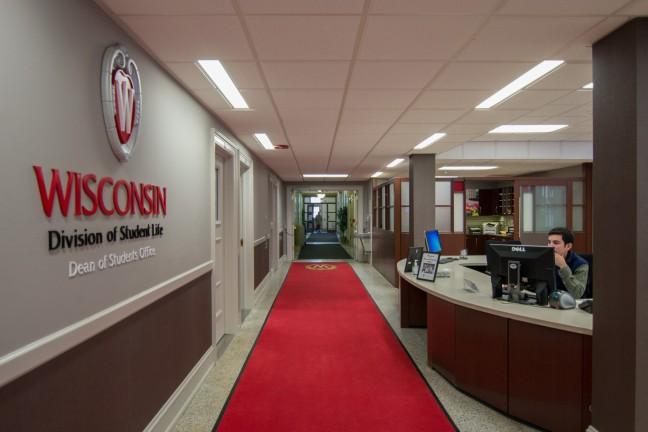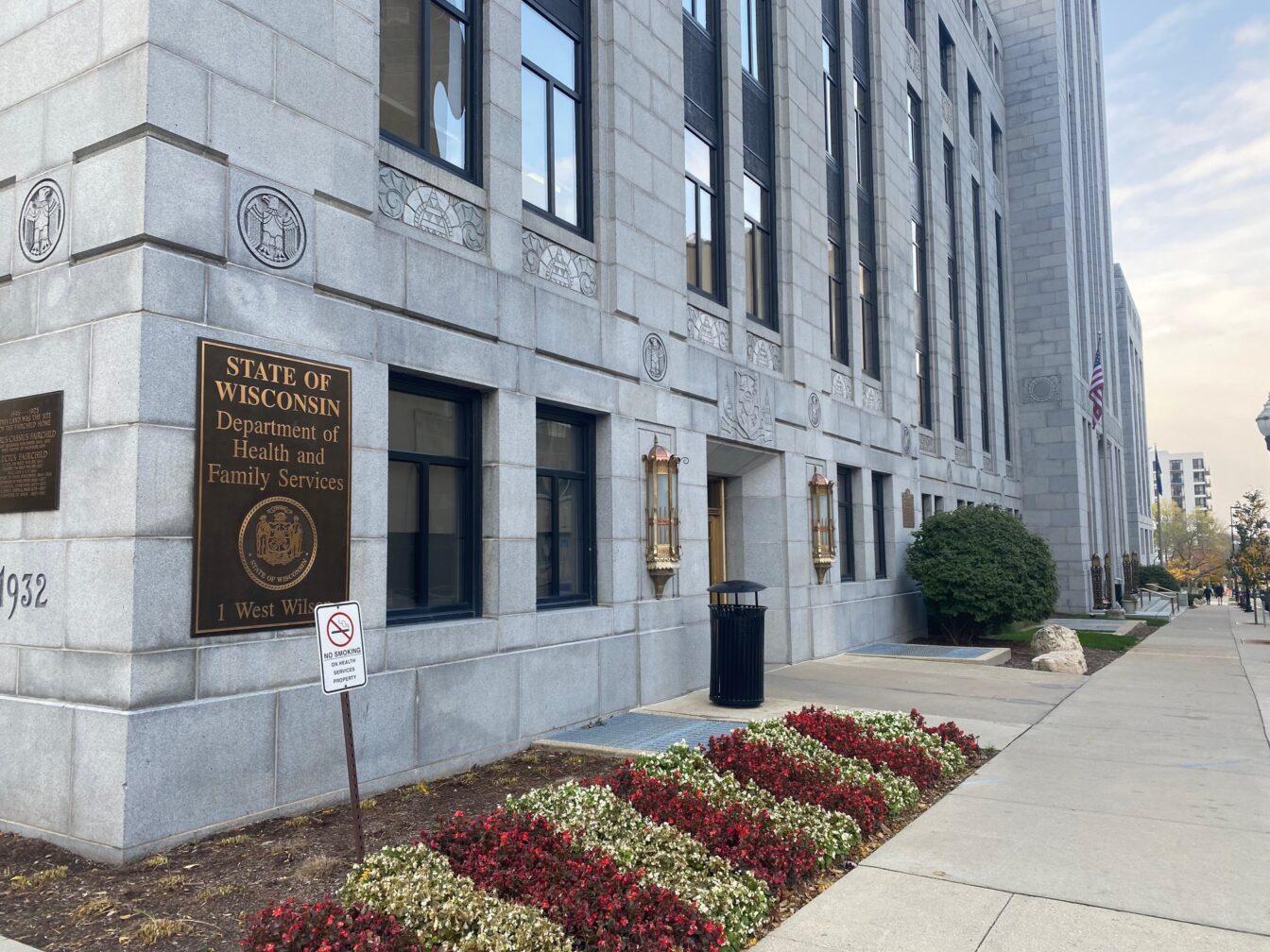The headline of the email reads “UW-Madison Crime Warning,” but it is the subhead that details the crime itself — sexual assault.
On Sept. 8, students received a crime warning that a sexual assault had occurred on campus. This email was the first case of sexual assault that students at the University of Wisconsin have knowledge of this academic year.
Though all students are notified if the University of Wisconsin Police Department is investigating an assault, few students are aware of the general investigation and disciplinary process UW launches when a student chooses to report a sexual assault to the university.
What students may not know is that the process of UW’s investigation is completely separate and different from the police investigation.
Rejecting silence: Student survivors take control, speak out on sexual violence
Reporting sexual assault
Protecting the identity of the victim is one of the most crucial aspects of sending out a crime warning, UWPD spokesperson Marc Lovitcott said.
In most crime warnings, the specific location of the crime is not mentioned. Though the university does not have a policy about disclosing the location, UWPD often doesn’t state where a crime occurs, Lovicott said.
“We may mention a southeast residence hall, but we don’t mention the specific hall because we want to protect the victim because someway, somehow an individual might be able to say, ‘Maybe I saw this person that night,’ or ‘Maybe I saw them at a party at a fraternity,'” Lovicott said.
If UWPD initiates an investigation and an arrest is made, a location could be identified through a public records request of the criminal complaint sent to the district attorney’s office, Lovicott said.
A name or location would most likely not be revealed if a victim decided not to report to police and an investigation is not initiated, Lovicott said.
What can be confusing to understand about the process is that an individual may report a sexual assault to the university, UWPD or MPD. If a MPD investigation is initiated, UWPD is also part of that investigation, Lovicott said.
“[Launching an investigation] is completely up to each person,” Lovicott said. “We hope they come to the police, but we understand that people cope with this horrible crime in different ways, and we respect that.”
UW protesters demand police offer more protection, information following sexual assault
The investigation
The Office of Student Conduct and Community Standards, previously part of the Dean of Students Office, investigates all student misconduct both academic and nonacademic, said Tonya Schmidt, UW Student Conduct and Community Standards director.
This office investigates cases of sexual assault if they are reported to the university, Schmidt said. UW launches an investigation if the complainant decides to move forward with the student misconduct process.
In the first of three phases in UW’s sexual assault investigation and disciplinary process, the sexual assault is reported to the Office of Student Conduct and Community Standards and assigned to an investigation officer, Schmidt said.
The officer works in tandem with UW Title IX coordinator, David Blom, to investigate the case. Blom talks to the complainant about options they have and provides them with resources like medical or legal assistance available in the community, Schmidt said.
After talking to the complainant and hearing their story, investigators collect any corroborating evidence, like text messages or video surveillance, Schmidt said.
The accused respondent is allowed the same option after the university sends them a letter detailing what they have been accused of and the university policies they could be in violation of if what they’ve been accused of is true, she said.
This process allows the investigating officer to make inquiries and gather statements before making a decision about whether the evidence warrants a sanction, like suspension or expulsion of the accused, Blom said.
The recommended sanction determines the next step of the process — the hearing, Blom said.
But Schmidt noted there is another point that can end an investigation before the hearing process.
Unlike a criminal case, which calls for evidence that proves beyond a reasonable doubt to convict someone, UW relies on the preponderance of evidence. This means just enough evidence needs to be acquired to make it more likely than not that the complainant’s claims are true.
If the investigating officer determines there is not enough information to reach preponderance of evidence, the case may be dismissed. The complainant can choose to have this decision reviewed by the chancellor, however, to determine whether they agree with the officer’s assessment.
“It’s simply taking the investigating report that was used to make the decision and having that reviewed by a panel of faculty, staff and students to see if that, in fact, was the case [that there was no preponderance],” Schmidt said. “If there is preponderance, it would go back into the [investigation] process, unless [the panel] agrees with the investigating officer.”
The hearing process
Once the investigating officer has gathered all the evidence, both the complainant and respondent are told the results of the investigation process and whether any sanctions have been made, Schmidt said.
If the respondent chooses to have a hearing process for the recommended sanctions, they and the complainant appear before a panel. The panel consists of three volunteers who are all trained in sensitive issue cases. Panelists can include students, faculty and staff, Schmidt said.
This panel is nominated by Associated Students of Madison, Faculty Senate and academic staff, Schmidt said.
The panel reviews the investigation information before determining whether a sanction is appropriate, Schmidt said. When the decision is made and if the panel decides to uphold the investigator’s decision, the respondent or complainant may choose to appeal their case to the chancellor.
But if the respondent does not want to go before the panel, they can wave their rights to the hearing, she said.
“At that point of time, if suspension or expulsion has [been recommended,] the respondent can go either through the formal hearing process or find a settlement,” Schmidt said. “Settlements are not like plea-bargains. They are for the same amount of [recommended time for] suspension or expulsion.”
Anything less than suspension or expulsion could be a discretionary appeal to the UW System Board of Regents.
‘Finally taking action’: Greek community to implement first major plan to address sexual assault
The decision
Though the panel may make the final decision on the a sexual assault case, the decision to report a sexual assault remains a students choice.
Blom said he believes that the more students know about the university’s investigation process, the more likely it is they will report sexual assault.
“I would hope once [students] kind of know what’s going to happen, it takes away some of the uncertainty of what’s going to happen when they report it,” Blom said. “It might help students be a little more comfortable. Getting this information out might help students decide they want to come forward and [report a sexual assault].”
Alice Vagun contributed reporting to this story.
This article was updated to clarify when locations of sexual assaults may become public information, and when a complainant can choose to request an investigation or appeal a decision.




















